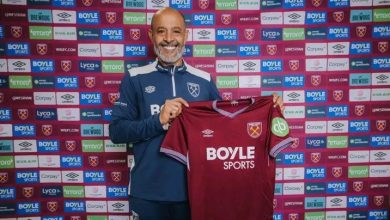Breaking News: Five-Star Recruit Shocks College Football World by Rejecting $6.7 Million, Decommits from Kansas State, and Flips Commitment to Florida Gators Over Notre Dame and Georgia………..

Breaking News: Five-Star Recruit Shocks College Football World by Rejecting $6.7 Million, Decommits from Kansas State, and Flips Commitment to Florida Gators Over Notre Dame and Georgia………..
In an unprecedented move that has rocked the world of college football recruiting, a five-star recruit has stunned the college football world by rejecting a staggering $6.7 million NIL (Name, Image, and Likeness) deal, decommitting from Kansas State University, and ultimately flipping his commitment to the University of Florida Gators. This shocking decision has shifted the landscape of college football recruiting and raised questions about the power and influence of NIL deals in shaping the future of top-tier talent.
Background of the Recruit
The recruit in question is a highly-coveted offensive lineman who has been ranked among the best players in the 2025 recruiting class. Standing at 6’5″ and weighing 310 pounds, he has been a dominant force on the field, known for his strength, agility, and technique. His recruitment process has been followed closely by college football fans, as many programs vied for his commitment.
Before his decommitment, this young prospect had originally committed to Kansas State, which had made him a centerpiece of their recruiting class. Known for its underdog mentality and solid football program, Kansas State seemed like a surprising but sensible choice. However, the Wildcats went all-in to secure his commitment by offering one of the largest NIL deals seen in college sports—an extraordinary $6.7 million.
The Impact of NIL on Recruiting
The offer from Kansas State was a game-changer in itself. NIL deals, which allow athletes to profit from their name, image, and likeness, have dramatically altered the recruiting landscape. The financial incentives tied to these deals have become a critical factor in decisions for top recruits, alongside traditional factors like coaching staff, facilities, and potential for playing time. Kansas State, aware of the importance of NIL in today’s recruitment, aggressively pursued the recruit with what was one of the most lucrative NIL deals ever offered by a non-traditional football powerhouse.
While the NIL package was certainly enticing, something about the overall package didn’t sit right with the recruit. Despite the financial security that the $6.7 million would have provided, he reportedly began to rethink his decision, especially after visiting several other schools.
The Florida Gators: A Strategic Move
The University of Florida, led by head coach Billy Napier, saw an opportunity to land a major recruit, knowing that NIL deals could play a pivotal role in convincing him to join the program. Florida, one of the nation’s most storied programs, has had a resurgence under Napier’s leadership and is in the midst of a competitive recruiting cycle.
The Gators’ recruitment pitch centered not only on their football legacy and coaching staff but also on the thriving NIL opportunities available in Gainesville. The Florida market, with its numerous endorsements, brand partnerships, and media opportunities, offered the recruit a chance to profit significantly while also playing in a high-profile football program in the Southeastern Conference (SEC).
What stood out in Florida’s offer was the balance they provided—not just focusing on the NIL package, but emphasizing the athlete’s growth as a player, the program’s commitment to developing him into an NFL prospect, and a chance to compete for championships. According to reports, the recruit was swayed by the Gators’ long-term vision for his career, both on and off the field.
The Final Decision: Flipping to the Florida Gators
After a series of visits, meetings with family, and consultations with trusted advisors, the recruit made the seismic decision to decommit from Kansas State and announce his commitment to the Florida Gators. This decision sent shockwaves through the recruiting world, especially considering the significant financial offer he had rejected from Kansas State.
This flip is not just a victory for Florida, but a defining moment in the evolving world of college football recruiting. It underscores the growing influence of NIL deals in recruiting decisions, as well as the emerging role of prestige programs like Florida in leveraging both athletic and financial opportunities to attract top talent.
What This Means for College Football Recruiting
1. NIL’s Increasing Power: This decision highlights the ever-growing role that NIL plays in college football recruiting. While traditional factors like playing time, coaching staff, and the potential for championship success have always been important, NIL has emerged as a game-changer that is increasingly becoming a major player in athletes’ decision-making processes.
2. Shift in Power Dynamics: Elite programs with significant NIL resources are now able to go head-to-head with traditional powerhouses like Notre Dame and Georgia, even when it comes to recruiting against them for players like this recruit. This shift could lead to a more level playing field for non-elite programs, giving them a chance to compete for top talent without the same resources in facilities or historical dominance.
3. New Competitive Balance: With NIL becoming an equalizer, we could see a shift in the competitive balance of college football. Programs with large media markets, significant brand partnerships, and the ability to create substantial endorsement opportunities could emerge as real threats to the traditional powers of college football.
4. Potential NCAA Response: The NCAA will likely need to address the growing influence of NIL deals in recruiting. While NIL was originally designed to help athletes profit from their brand, the massive sums of money involved in some of these deals may prompt discussions on whether current regulations around NIL are sufficient or need reform. The recruit’s decision to turn down $6.7 million raises the stakes for future recruitment, and how the NCAA responds could have lasting effects on the landscape of college sports
Reactions from Around the College Football World
Kansas State’s Response: The Wildcats expressed disappointment over the recruit’s decision but acknowledged the shifting dynamics of modern college football. Kansas State will now turn its attention to its remaining recruiting class and will need to adjust its strategy to ensure it remains competitive in securing top-tier talent.
Florida’s Celebration: Florida Gators fans and staff have expressed excitement over securing one of the most highly-regarded recruits in the nation. Coach Billy Napier lauded the recruit’s decision and reaffirmed the program’s commitment to developing top-level talent while providing opportunities for NIL success.
Notre Dame and Georgia’s Disappointment: Both Notre Dame and Georgia, who were also in contention for the recruit’s services, expressed their disappointment but also acknowledged the strong case that Florida was able to present. While both programs remain powerhouses, the increasing role of NIL deals may force them to reassess their own recruitment strategies.
Conclusion
This shocking flip from Kansas State to Florida is a significant milestone in the new era of college football recruiting, where NIL deals, player development, and program prestige intersect to shape the decisions of top-tier talent. As the college football landscape continues to evolve, this moment serves as a reminder that recruiting is no longer just about tradition and facilities—it’s about offering athletes a full package that balances their athletic aspirations with their financial futures.





